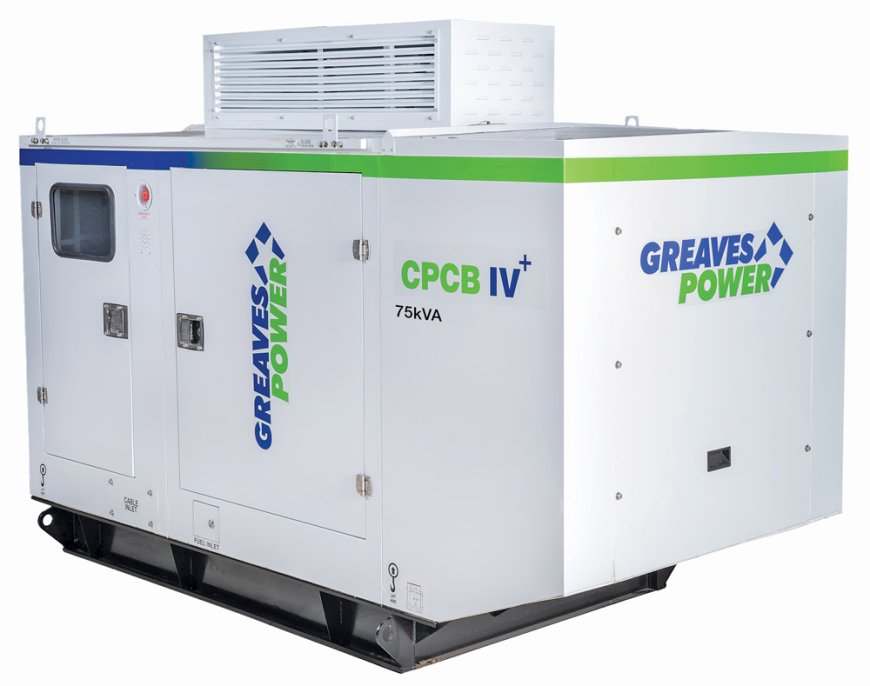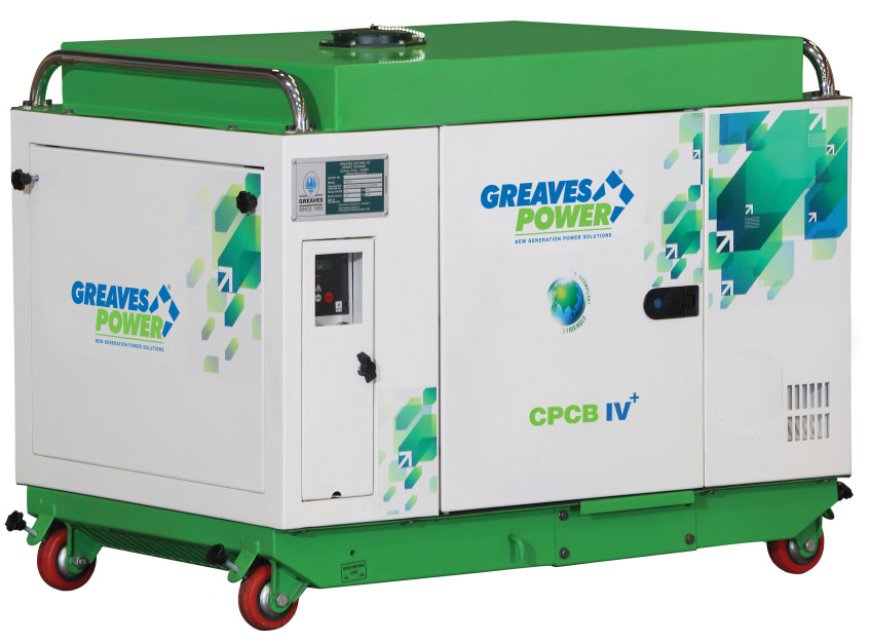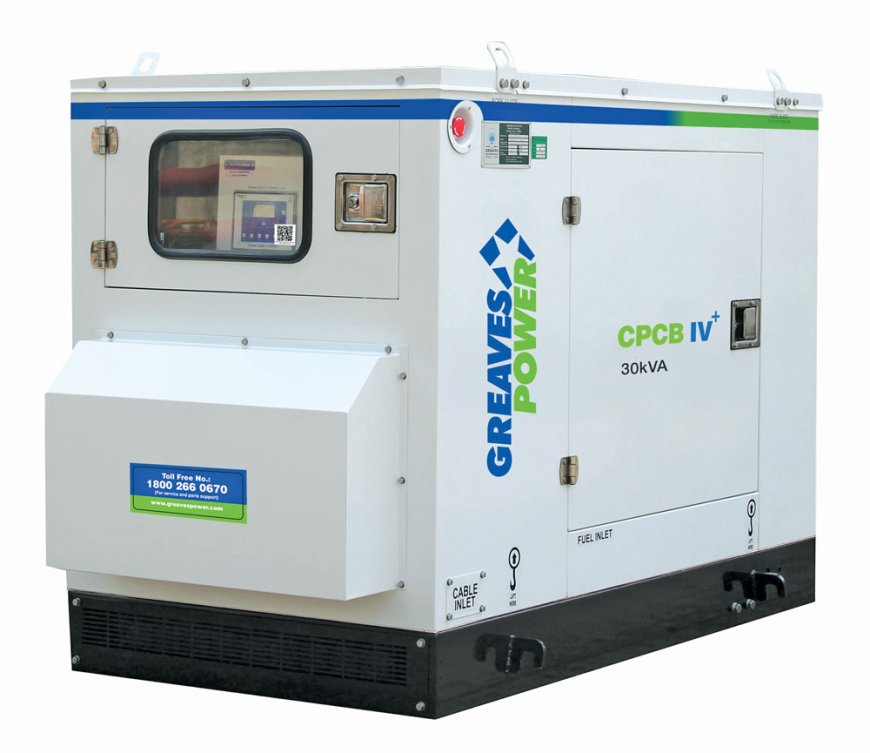Advancements in fuel efficiency and emissions control are playing a pivotal role in shaping modern genset design.

Dr. Arup Basu, MD, Greaves Cotton
What are the current trends in the genset market for construction and mining projects? What are the key factors driving the growth of gensets in these sectors?
The genset market for construction and mining is shifting toward sustainable, fuel-efficient solutions, driven by stringent environmental regulations. The growing adoption of IoT-enabled gensets is a key trend, as these systems not only meet new regulatory standards but also provide real-time data to optimize uptime and performance. Additionally, innovations in alternative fuels and advanced engine designs are reshaping the market, as projects seek more efficient, lower-emission power solutions.
Another key driver is the increasing demand for High Horsepower (HHP) gensets, which are essential for larger, more complex projects that require robust and reliable power sources. Advancements in alternative fuels like CNG, biodiesel, and ethanol blends, combined with cutting-edge engine designs, are helping to reduce emissions and support global sustainability goals.
The growth of the market is further fuelled by the need for uninterrupted power in remote locations, rising infrastructure development, and the industry’s focus on sustainable, reliable energy solutions that minimize operational downtime.

How has the demand for gensets evolved in the past few years?
Over the past decade, the demand for diesel gensets has experienced steady growth, driven primarily by power shortages and rapid infrastructure development. Key sectors such as data centres, telecom, healthcare, manufacturing, and construction rely heavily on gensets to ensure a consistent and reliable power supply. The agriculture sector has also contributed to this growth, particularly in rural areas where gensets are being used to power microgrids and enhance energy accessibility. Rural electrification efforts and the rising need for microgrids have further fuelled this expansion. Additionally, the international genset market, particularly in regions like the Middle East, presents opportunities for exploration.
However, there is a growing shift toward more sustainable solutions, with an increasing focus on gensets powered by alternative fuels and designed to produce lower emissions. Regulatory changes, combined with the broader industry’s push toward greener technologies, have accelerated this transition. Government initiatives such as the ‘Make-in-India’ campaign and the development of smart cities are further supporting this move towards sustainability.

Can you describe any recent technological innovations in your genset products? What role does automation and smart technology play in your gensets?
Recent innovations in our genset portfolio are centred on integrating cleaner fuel options that comply with new emission regulations, such as CPCB4+. Our strategy also includes alternative-fuel gensets powered by CNG, biodiesel, and ethanol blends. The introduction of Greaves Smart Gensets, equipped with IoT capabilities, enables real-time performance monitoring, significantly enhancing efficiency and durability. These features provide valuable insights that help prevent wear and tear, optimizing operational longevity.
Additionally, our gensets are engineered with durability and portability in mines, featuring a deep-skirted crankcase that minimizes maintenance needs while ensuring reliable operation across a wide temperature range, from -5°C to 50°C. These innovations ensure that our gensets deliver the robust, minimum-noise performance our customers expect, even in the most demanding conditions.
How are advancements in fuel efficiency and emissions control influencing genset design?
Advancements in fuel efficiency and emissions control are playing a pivotal role in shaping modern genset design. Manufacturers are increasingly prioritizing the development of gensets that not only optimize fuel consumption but also comply with stringent environmental regulations. This has driven the adoption of technologies such as electronic fuel injection, turbocharging, and after-treatment systems to effectively reduce emissions. Furthermore, the rise of hybrid gensets that integrate renewable energy sources reflects a growing alignment with global sustainability trends, offering a cleaner, more efficient power solution for various industries.

How do your gensets compare with competitors in terms of efficiency and reliability?
Greaves Engineering’s CPCB IV+ compliant gensets set a new benchmark for efficiency and reliability in the industry. With the ability to reduce NOx and particulate matter emissions by up to 90%, our gensets provide an environmentally sustainable solution without sacrificing performance. Covering a broad range from 5 kVA to 500 kVA in the <800 kW segment and extending up to 2500 kVA, they are designed to meet diverse market demands.
Key engineering innovations, such as the deep-skirted crankcase design, enhance both durability and portability while minimizing maintenance costs. Our gensets are built to perform reliably in a wide range of operating conditions, delivering consistent results even in extreme environments.
Our gensets feature advanced fuel management systems that significantly reduce fuel consumption, offering substantial cost savings over long-term operation. We also prioritize low emissions, consistently meeting or exceeding global environmental standards.
In terms of reliability, our gensets are equipped with robust components and modern diagnostics, ensuring minimal downtime and simplifying maintenance. With a focus on continuous innovation, we integrate the latest technologies to boost efficiency and durability, in sectors such as construction, mining, and industrial applications. Our commitment to high-performance and sustainability distinguishes our gensets.
What measures are being taken to enhance the environmental sustainability of your gensets?
Sustainability is a core pillar of our innovation strategy at Greaves Engineering. We are actively implementing several key initiatives to enhance the environmental sustainability of our gensets:
Advanced Emissions Control: We are integrating cutting-edge technologies to drastically reduce harmful emissions, such as NOx and particulate matter, ensuring compliance with global environmental standards.
Fuel Efficiency Enhancements: Our gensets feature advanced fuel management systems, including electronic fuel injection and hybrid models that combine conventional fuel with renewable energy sources, significantly reducing fuel consumption and carbon emissions.
Hybrid and Renewable Energy Integration: We are pioneering hybrid gensets that blend traditional diesel engines with renewable energy sources like solar and biofuels, lowering dependence on fossil fuels and further reducing emissions.
Eco-Friendly Materials and Manufacturing: We are adopting sustainable manufacturing practices and using eco-friendly materials to minimize waste and reduce the environmental impact of our production processes.
By adhering to the latest environmental regulations and driving innovation in sustainable power solutions, we align with India’s goal of achieving net-zero emissions by 2070, solidifying our leadership in environmentally responsible power generation.








